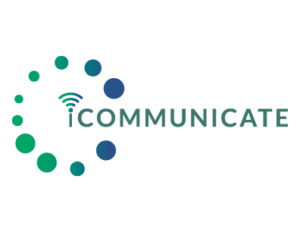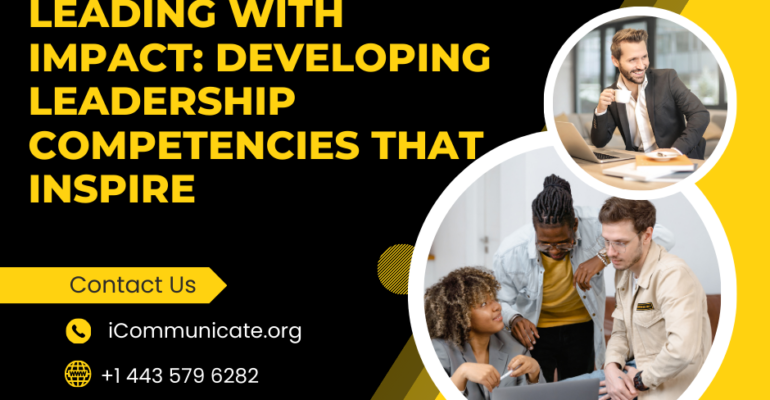LEADING WITH IMPACT: DEVELOPING LEADERSHIP COMPETENCIES THAT INSPIRE
November 15, 2023 2023-11-15 19:45LEADING WITH IMPACT: DEVELOPING LEADERSHIP COMPETENCIES THAT INSPIRE
You’re competent and efficient and hold a role that commands respect. Yet, you sense a potential within you that’s yet to be tapped. How do you transition from a manager who executes well to a leader who inspires and transforms? The answer lies in cultivating specific leadership competencies that elevate you and your team. Let’s get into the specifics.
Understanding Leadership Competencies
Leadership is a fusion of nuanced abilities, molded and shaped to fit various situations. It involves adapting skills and behaviors that empower your unique organizational culture. This blog offers concrete areas for improvement, moving you away from abstract ideals to actionable strategies.
Competencies in leadership must be adaptable and potent to withstand organizational change and unexpected challenges. Consider your leadership style as an evolving story—is it one you’re actively writing, or are you triggered and trying to survive?
Seeing leadership as a dynamic narrative empowers you to actively shape it, ensuring you’re constantly engaged in your development and your team’s direction rather than passively observing as events unfold.
Start by clarifying your competencies, then develop your unique style to inspire action and teamwork with integrity.
The Power of Emotional Intelligence
Emotional Intelligence (EI) isn’t about manipulating emotions to further an agenda but about understanding and managing your relationship with your emotions. To increase your EI, start by practicing your ability to fully listen to what is being said. Often, we listen to respond — not to understand. Shift that paradigm. Practice placing yourself in your colleagues’ shoes, not to pity them, but to understand their perspectives more deeply. Emotional Intelligence starts where your own ego ends and active listening begins.
Understanding emotional landscapes—theirs and yours—serves as a compass. It informs you when to push and when to provide space, how to motivate, and how to alleviate tensions. Emotional Intelligence isn’t merely a competency; it’s the foundation upon which authentic communication is built.
Strategic Vision and Adaptability
The best leaders develop a powerful relationship with the unknown. They are keenly aware of an ever-changing landscape as they map out strategies. Your vision needs to be as flexible as it is clear. It’s a blend of foresight, anticipation, and the rare ability to pivot without losing sight of your north star.
Have you considered how resilient your strategic goals are to external shocks? To develop this competency, practice scenario planning. Create different business scenarios for the next quarter, the following year, and the next five years. How would your leadership strategy adapt in each case? What elements remain constant? Understanding this helps you develop both your strategic thinking and your adaptability.
Innovation and Creative Thinking
Innovation isn’t just for the “creatives”; it’s a leadership competency that can be developed. Dedicate time each week to ponder existing problems and potential solutions. Encourage brainstorming sessions within your team, ensuring all ideas are welcome. Cultivate a culture where breakdowns provide vital insights for progress and are treated as learning opportunities.
Creative thinking is a mindset that sees opportunities where others see dead ends. It’s the continuous practice of looking at existing problems through differing lenses to reveal previously unseen opportunities.
Leading by Example and Integrity
Being a charismatic leader may capture attention and even admiration momentarily. However, the crux of genuine leadership lies in integrity—a trait that not only garners respect but also forges deep connections.
Leadership is a top-down phenomenon. People emulate behavior, and your actions are constantly observed as a leader. Make integrity non-negotiable. When you face tough decisions, make them transparently, explaining the rationale and ethical considerations behind your choices. Keep the promises you make—or don’t make them. It’s that simple.
Continuous Learning and Growth
Personal development doesn’t happen by accident; it’s a deliberate process. One way to achieve continuous learning is through a mentor-mentee relationship. If you don’t already have a mentor, consider finding one. Concurrently, act as a mentor to younger team members. You’ll be surprised how much you can learn by teaching. Encourage a culture of feedback within your team and act on it, demonstrating that growth is a shared goal.
Seeking out challenges, acknowledging mistakes, and turning them into lessons creates a learning loop that becomes a spiral of growth. When was the last time you stepped out of your comfort zone, professionally or personally, in the quest for development?
Conclusion
Cultivating these leadership competencies isn’t an overnight task but an investment with immense returns. This is your call to step beyond the boundaries of good leadership into the realm of greatness. The competencies explored here aren’t just theories or abstract concepts; they are actionable pathways. Revisit them, adapt them, live them.
Leadership isn’t about the title on your door but your impact on people’s lives. Make it monumental; make it reverberate through the corridors of your influence and the vast skies of your ambition. It’s time to lead with impact.


